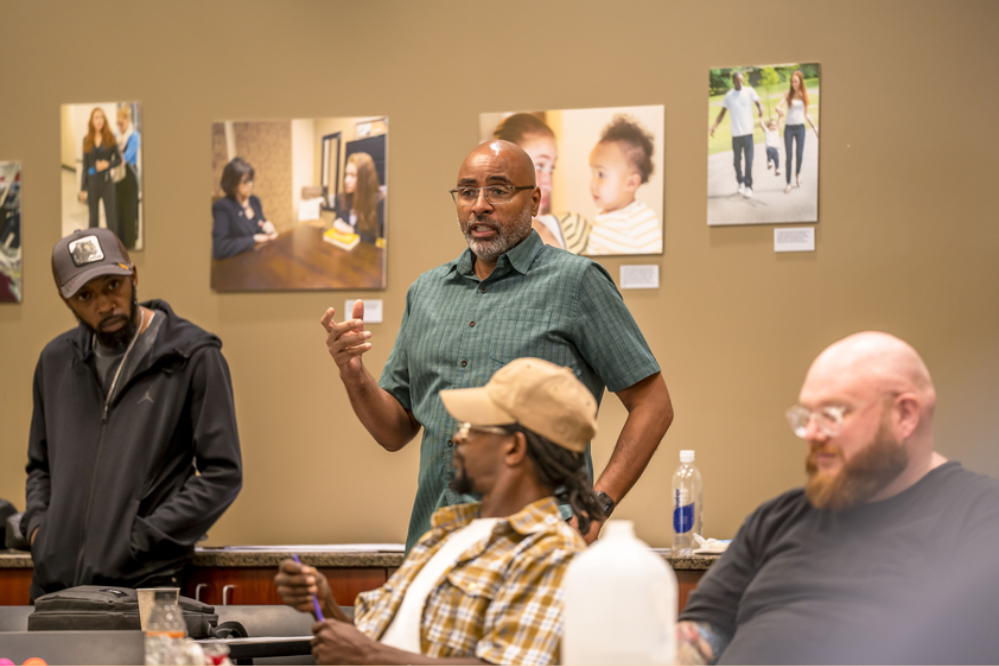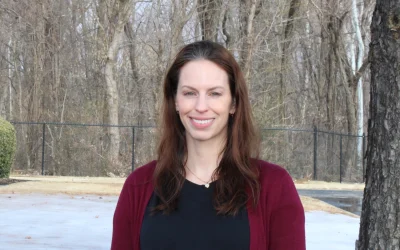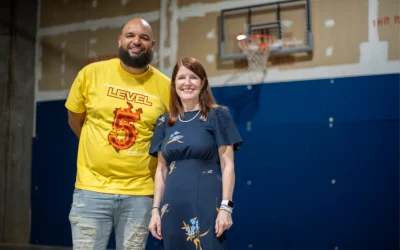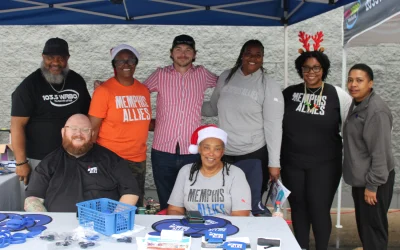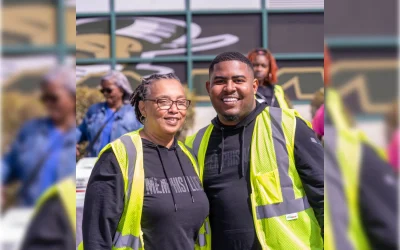At Memphis Allies, the training never stops
Every day in Memphis, businesses provide their employees with continuing education and new training. It’s a temperature check of sorts.
How are our employees doing? Are they consistently applying best practices? Where can they improve?
Probably nowhere amid these exercises is a trainer saying, “If you’re a street cat, you don’t forget faces.”
But that is what Chicago CRED’s Terrance Henderson said when conducting a recent training session here for Memphis Allies outreach specialists. His statement went to a core point:
Intervention begins with these outreach specialists who are on the front lines of Memphis Allies’ initiative to reduce gun violence through its SWITCH and SWITCH Youth programs (Support with Intention to Create Hope).
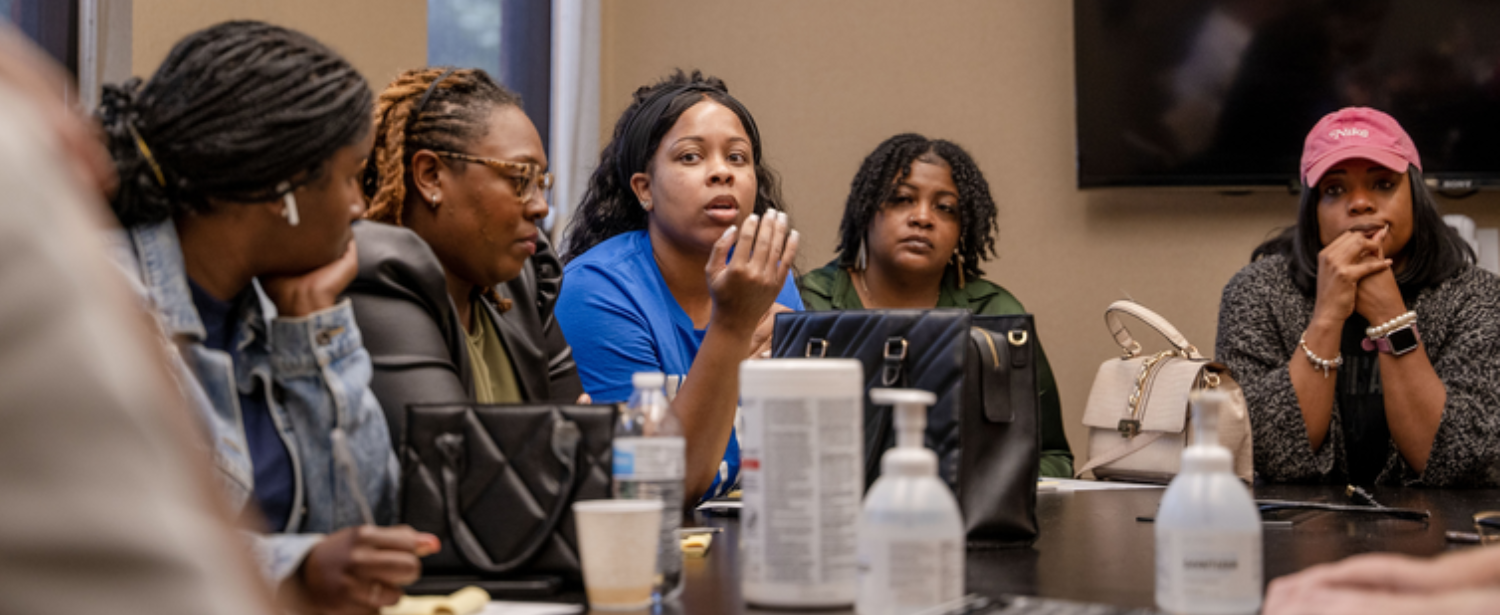
While the programs also rely on life coaches, case managers and clinical specialists as part of the model, it is the outreach specialists who make the first approach. They are the ones trying to bring those at the highest risk for gun violence—as perpetrator, victim or both—toward living lives with more defined structure and greater opportunity.
This work, Henderson knows all too well, is neither easy nor risk-free.
“Any time you step into these hot zones, y’all [are] putting your lives on the line,” Henderson told the assembled outreach specialists, most of whom were wearing Memphis Allies-branded shirts, hoodies and caps—their uniform in the streets.
“This isn’t a job,” he said. “It’s a lifestyle.”
This isn't a job. It's a lifestyle.
– Henderson
A successful model
In many respects, Chicago CRED already has walked the ground that those working for Memphis Allies seek to occupy.
Started in 2016, Chicago CRED (Create Real Economic Destiny) has been intervening in gun violence in the South and West Side communities of Chicago through a holistic approach that includes street outreach, life coaching and counseling, violence prevention, workforce development and advocacy.
Before Youth Villages launched the Memphis Allies initiative, the program’s executive director, Susan Deason, and others studied the Chicago CRED model and similar projects across the country.
The first Memphis Allies outreach specialists were on the ground in Raleigh/Frayser in the summer of 2022, and since have expanded to cover Orange Mound and Hickory Hill. In each area, Memphis Allies is partnering with community organizations.
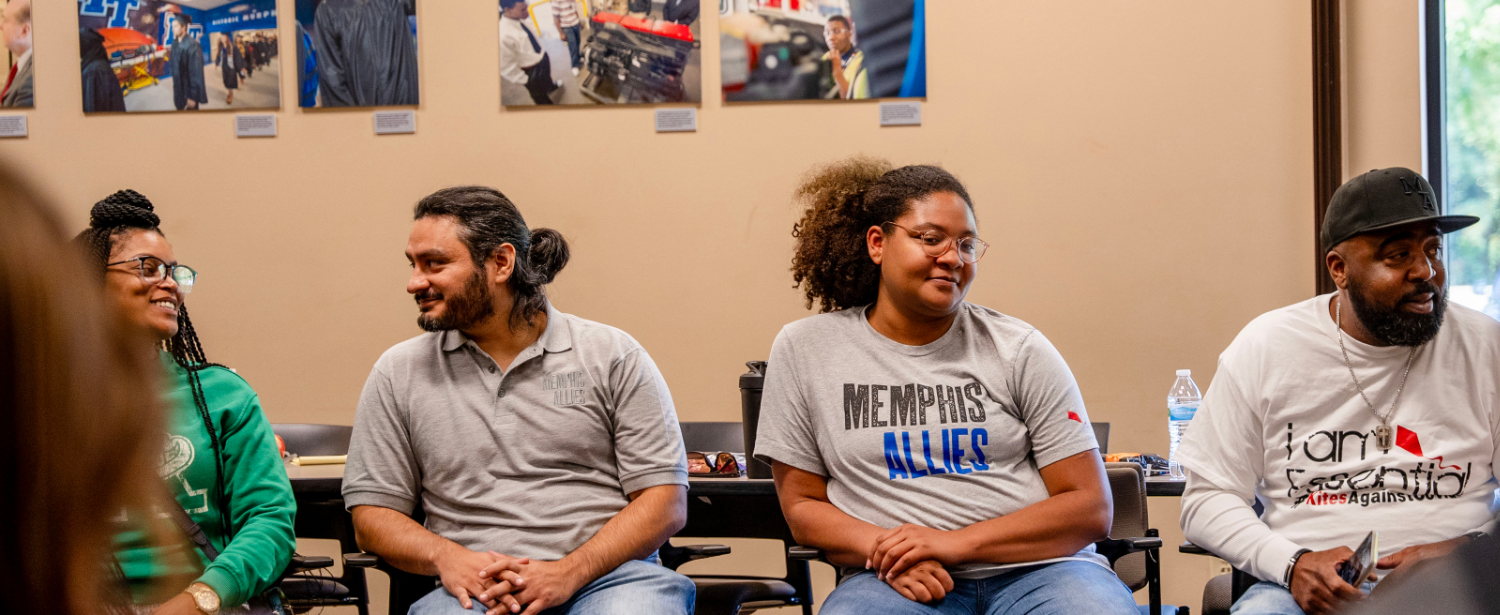
Deason says it was crucial to see first-hand how impactful community violence intervention programs worked. According to a Northwestern Institute for Policy Research report in 2021, Chicago CRED showed positive results early:
The number of fatal and non-fatal gunshot injuries across all CRED participants decreased by nearly 50% in the 18 months after entering the program; the number of arrests for violent crimes fell 48%.
Said Deason: “This is difficult work on so many levels. We know more here in Memphis today than we did two years ago, or one year ago. It’s why we ramped up SWITCH Youth, which we make available across the city.
“You never stop learning,” she continued. “And there is tremendous value in drawing on the experiences of those who have been doing this work longer.”
Never done
As part of the recent training, Henderson had the outreach specialists break into groups and discuss real-life situations. The goal: take communication within all teams to a higher level to create more potential pathways to reaching people at the most risk for gun violence.
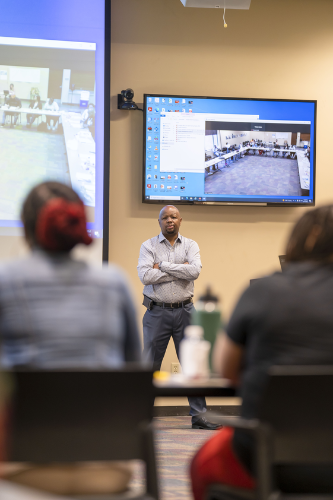
Henderson also discussed the urgent need to bring about peace—even if only temporarily—via non-aggression pacts between gangs or groups with ongoing conflicts.
“To agree to just play defense, not offense,” Henderson said.
Outreach specialists never know when they will have an opportunity to connect and perhaps prevent a shooting. So, Henderson told them they need to be ready with what amounts to an elevator speech—two minutes to start forming a relationship that might take weeks or months to solidify but could pay off in a time of crisis.
“The biggest tool you got with this high-risk population is being relatable,” he said.
Going forward, Memphis Allies staff will continue to receive training both here and in Chicago. This in-the-streets work is less a job, as Henderson said, than it is a day-by-day, hour-by-hour lifestyle.
“The training must continue,” Deason said. “This is a forever mission.”
More Posts
Pain is Universal
Image above: Jennifer Davis, Memphis Allies SWITCH program clinical supervisor Memphis Allies Clinical Supervisor Jennifer Davis: ‘Pain is universal.’ Fight. Flight. Freeze. Imagine living every day within one — or all — of those three realms. Many Memphis Allies...
Memphis Allies sees progress in reforming violent offenders. Here’s how
Image above: Memphis Allies Managing Director of Operations Carl Davis and Executive Director Susan Deason pose for a portrait in the recreation area of the facility in Memphis, Tenn., on September 3, 2025. Chris Day/The Commercial Appeal Lucas Finton, Memphis...
Holiday Toy Drive
Image above: Memphis Allies teams up with 103.5 WRBO at the holiday toy drive Community generosity thrives at Memphis Allies toy drive Memphis Allies hosted a Holiday Heroes toy drive in December. Memphis Allies staff, along with radio station 103.5 WRBO, accepted...
Making Vital Connections
Image above: Debbie Thompson, Memphis Allies community relations manager, and Jevonte Porter, Memphis Allies community relations director Memphis Allies community relations team making vital connections In 2022, when Memphis Allies began sending outreach specialists...

